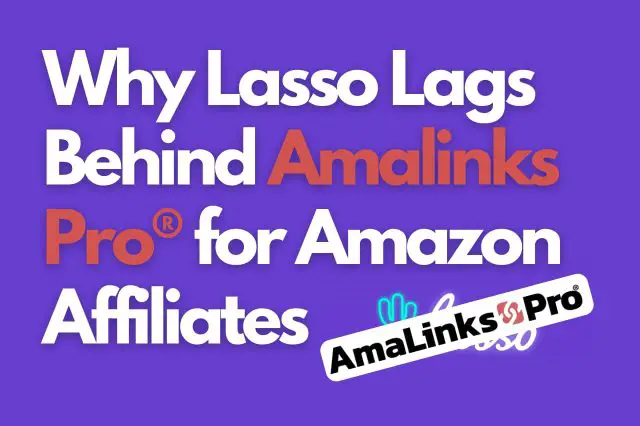Starting a new affiliate site is an exciting endeavour, but choosing the wrong type of affiliate business model can be costly. The early excitement can quickly turn into frustration and despair, leading ultimately to a lot of wasted effort. Taking your time to investigate the different options before you start could prove to be a very valuable investment. There are essentially two Amazon affiliate marketing models you can choose from that encompass different types of sites within them – an Amazon Affiliate store or an informational website. This post looks at the two types to help you decide which one to build. Let’s dig in.
What exactly are the Business Models?
First up, there’s the Amazon Affiliate store. This looks and feels exactly like an online shop but refers readers to Amazon to make the purchase.
The second type is an informational website and includes review sites, blog sites and authority sites, with the latter two often grouped together as being the same thing.
What are the differences?
An Amazon Affiliate Store
- Looks just like an eCommerce store and displays Amazon products that you make a commission on.
- This type of store can come with or without a blog element.
An Informational Website – Review
- Looks more like a blog or magazine website. A review site publishes high-quality useful reviews and seeds affiliate links within that content.
An Informational Website – Blog
- As above this type of site also contains reviews, but alongside those, there will be lots of supporting content that isn’t a review.
An Informational Website – Authority
- An authority site is essentially an informational site that, over time, has earned trust and respect from users, industry experts and search engines.
What are the Pros and Cons of an Amazon Affiliate Store and an Informational Website?
Now we’ve established the different types, let’s take a quick look at the pros and cons of each type before we dive in a little deeper.
Store Pros
- Very quick to populate a site with lots of different affiliated products.
Store Cons
- No real added value for readers.
- Thin content can lead to a site being rejected by Amazon. They will check your site after three qualifying sales and if they deem that ‘when Amazon content is removed the site is not viable’ then your API will be denied. Check out this useful article for more on this.
- Thin content can lead to a site not ranking well on Google – more on this below.
- Difficult to generate rapport and trust with your audience through a storefront.
Informational Pros
- Easy to set up.
- Huge variety of content options, keeping things fresh for your readers and you!
- Your unique content allows you to develop your brand and voice, making it easier to build rapport with your readers.
- Easier to rank for specific long-tail keywords.
Informational cons
- It’s either time-consuming or costly to build out all of the content.
More on the Affiliate Store Model
It’s relatively simple to add an affiliate store to your WordPress site, as long as your theme is compatible with the various storefront plug-ins. The main ones to choose from are WooCommerce and BigCommerce – check out this post for a detailed look.
Although you can add Amazon affiliate links directly through the WooCommerce plug-in, it’s a manual and time-consuming process. Adding an additional plug-in such as WooCommerce Amazon Affiliate by WZone allows you to bulk-add items. Any clicks from these links also have a 90-day cookie on Amazon, rather than a 24-hour one – a great way to potentially boost your earnings.
A word of warning though. The WooCommerce Amazon Affiliate plugin states the following disclaimer:
Important – this plugin is just a tool to help you develop a WordPress / WooCommerce website. Do not make mini Amazon websites, because Amazon will close your affiliate account if you only import Amazon products without having other content on your website (other products, posts, reviews and so on).
As we’ll see later, Amazon isn’t the only one to clamp down on this sort of thing. Affiliate stores are generally frowned upon. In conjunction with a blog, a store could be a very useful addition to your site. But a stand-alone Amazon affiliate store runs a high risk of getting your affiliate account closed.
How do Your Readers Interact with Your Site?
Having a store alongside a blog allows you to compare which links perform better in order to better understand how readers interact with your site. Let’s say your business is in the homeware niche, specializing in blenders and food processors. You could have a review page for a particular blender with a hefty deep-dive post covering all the pros and cons of the product, with several types of affiliate links embedded within, along with a clear CTA at the end. And if this blender is a product you rate well, then you’ll most likely include it on your storefront, too.
So, if you were to track, over a set period of time, how many clicks the review post generated in total (from all of its seeded links), and then compare that with how many clicks the storefront links generated in total during the same time period – you’ll be able to see which converted better. Understanding this metric will help you to see how your readers tend to interact with your content, helping you to decide if having the store is worth your time and money.
Customer expectation
When asking yourself if an Amazon Affiliate store or an informational website is best for your audience, if you do decide you want a storefront, then there is one vital aspect you need to be aware of – customer expectation.
Your store could look amazing, enticing your visitors to click on the ‘Buy Now’ button, only for them to then arrive on the Amazon store and be utterly confused. If it’s not clear from the outset that your store is an affiliate store, you stand a good chance of freaking new readers out by sending them somewhere they weren’t expecting. Even if it’s a place they trust, like Amazon.
A ‘Buy on Amazon’ or ‘Check Price on Amazon’ button would work better in the instance above. Just a simple tweak to the CTA prepares the reader for the fact they’ll leave your store and go to Amazon, helping to keep any trust you’ve potentially generated from your site.
The more your readers trust you, the higher your conversion rate will be. Trust is hard to gain and yet so very easy to lose. It’s also absolutely crucial for an affiliate. A misleading CTA could turn a new reader away from your site forever. A transparent and honest CTA could lead to higher conversions and more affiliate sales!

Create your own product descriptions!
As affiliate marketers, our aim is to pre-sell a product. In a blog site, this would be in the form of a review. However, in a store site, your ability to pre-sell becomes severely limited.
However, let’s say you do want an affiliate store with a blog alongside it. Instead of your blog containing in-depth review posts though, you decide your audience is better served by how-to guides and interviews with other influencers in your niche. If that is the case then your store, rather than a review, becomes your trusted list of recommended products. And this is where you can pre-sell and add unique value by crafting excellent product descriptions.
This will provide a better, less jarring experience for your readers. If you take the product descriptions from Amazon it will mean that when a reader clicks through, they will see the same information from your site again on the Amazon store. Writing your own product descriptions with your own voice will show the reader (and Amazon!) that you’ve added some unique content to your store and provided a little extra value for your audience.
More on the Informational model
The informational website model allows you to create in-depth reviews and other valuable supporting content, making it easier for you to attract readers to your site. Do your job well, and those quality posts will rank, pulling new readers in organically. Keep them returning to your site through engaging and highly useful fresh content, and you’ll be on the road to generating that all-important trust.
Informational websites also offer you much more opportunity to create varied types of content, all of which can earn you money. An article doesn’t have to be a product review to generate money. Check out Matt’s super-useful post for ways to monetize any kind of post.
Ultimately, as affiliate marketers, we want to make money for ourselves, be it as a side hustle or our main income source. We know that the way to success is to serve our readers, and an informational site gives us the best opportunities to do just that. How-to guides, review posts, comparison features – the variety is vast and will attract readers from lots of different search intents. It’s tough to accomplish the same with a straight-up Amazon affiliate store.
Save Time and Increase Your Earnings with WordPress Plug-ins
The down-side of an informational site is the huge amount of time it takes to generate the content. However, there are lots of plug-ins for WordPress that can speed up your productivity, help you to create great content, and increase your vast potential to earn more. AmaLinks Pro® is one of them, with its sleek product Showcase Boxes which help to maximize your click-through rates. Not to mention the state-of-the-art product comparison Table Builder add-on. And there are many other plugins to choose from, too. Here are just a few:
- RankMath SEO – make sure your blog posts rank well in searches using powerful features by RankMath
- LinkWhisper – maximize your internal linking possibilities with LinkWhisper
- WP Rocket – ensure your site runs as fast as it can with a boost from WP Rocket
- Elementor – design pages exactly how you want them to look with Elementor
Genuine value generates trust
It’s tempting to think that having a storefront is a magic bullet that is going to save you a whole heap of time. Most of us affiliates work on our sites alongside a day job, and we all know how tiring and hard it is to keep creating detailed content week after week. Maintaining a simple affiliate store instead of having to generate in-depth review posts would absolutely save a TON of time! So, when contemplating whether to build an Amazon Affiliate store or an informational website, you may still be tempted to go down the store-only route.
However, it’s important to keep in mind the magic word ‘value’ here. How much value will your site offer to a reader if it essentially just replicates what they see on the Amazon storefront? Without value – a benefit to your readers –, are they likely to come back to your site time and again to just click through to Amazon? Or are they more likely to just, well, go straight to Amazon…? You have to give them a reason to come to your site.
The Google Search Central documentation states:
‘Ask yourself why a user would want to visit your site first rather than visiting the original merchant directly. Make sure your site adds substantial value beyond simply republishing content available from the original merchant.’
And with value comes trust. The more those readers return to your site to get that value benefit that your content provides, the more trust you build with them. From that first fragile interaction with your business, you need to do everything in your power to let the reader feel like they’re in safe hands and that they can trust you.
An Important Note on SERP Ranking and the Google Algorithm
The advice often given by the gurus is to meet your audience where they are and solve their problems through your content. With very little depth, it’s very difficult to do this via an eCommerce store alone.
And even if you create an incredible affiliate store that works well and is SEO optimized, there is no guarantee that the site will perform well in the search engine results page. Why? Because Google is clamping down on sites that they feel offer thin content. Back to Google Search Central again:
‘Pure affiliate sites consisting of content that appears in many other places on the web are highly unlikely to perform well in Google search results and may be negatively perceived by search engines. Unique, relevant content provides value to users and distinguishes your site from other affiliates, making it more likely to rank well in Google search results.’
In their 2017 FRED algorithm update, Google seemed to crack down on low-value sites that didn’t offer unique content, with some users reporting a 90% drop in traffic. The latest algorithm update in December 2020 targeted similar sites.
Avoid creating search engine spam
Cheap, thin content is nothing more than search engine spam which is exactly the kind of content Google is trying to eliminate from SERPs. The fact that both FRED and the latest update target these kinds of sites should serve as a warning to us. There is no short cut to building an online business. If it looks to be a fast and easy way to make money online, it’s almost certainly going to be a very short-lived business.
Future algorithm updates will most likely deepen this trend of weeding out of shallow, poor quality sites. So, in order to ensure your site continues to grow, you need to make sure you provide unique value to your readers. Write for your audience, not to fit an ever-evolving algorithm. In the long run, your quality content will win out for the simple reason that it’s uniquely useful to readers.
A Side-Note About (non) SEO Marketing
If you can conquer SEO and get that elusive search engine traffic to your website – that’s great! If you rank for the proper keywords, this type of traffic is proven to convert to affiliate sales really well. But not everybody will be able to dominate SEO and get their pages to the top of the SERP’s. If you have another way to get traffic to your website – like social media marketing (with sites like Facebook, Instagram, or Pinterest), then you don’t necessarily have to play by all of Google’s so-called ‘rules’ for your website content. This is just a little something to think about and consider.
The Verdict – an Amazon Affiliate Store or an Informational Website
We want you to succeed, we really do. So when it comes down to answering the question of whether an Amazon Affiliate store or an informational website is best, we believe the most value can be given through an informational style site.
You could build an affiliate store site and it might earn you some money, but if Google is (rightly) looking to clamp down on sites that don’t offer unique deep value, then realistically your site won’t rank well and it’s going to be increasingly hard to drive traffic.
Google isn’t doing this out of a sense of altruism, by the way. They know that if users keep finding poor content to answer their search queries, those users are most likely going to jump ship to another search engine that delivers better results. Obviously, that’s not what Google wants. And it’s not what we Google users want either.
If you do feel a store is a good fit for your business, then the only way to include it is alongside a blog and to support it with lots of additional, unique and valuable content. You can then structure your site to guide customers to the value aspects while also giving them the option to browse a store if they want to. Again, track and compare the clicks you get. The results will tell you very clearly which way your readers lean.
Without the supporting content, a storefront alone will certainly save you a huge amount of time but it’s unlikely to generate as much money or even to rank on SERPs. On top of that, Amazon could decide to revoke your API access any day if they deem your site to be thin on unique, non-Amazon content. Ultimately, you have to ask yourself – is that a risk worth taking?




